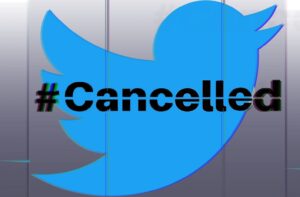
From your favorite talk show host, to your neighborhood Karen, it seems as if nobody is safe from the unforgiving consequences of “cancel culture.”
Summer 2020 was ruthless to countless celebrities who were thriving in their careers just weeks before their cancellation. Stars such as Doja Cat and Tory Lanez experienced a gruesome, downward spiral that social media is mostly responsible for.
A columnist from The Times, Bari Weiss, stated in her resignation letter, “Twitter has become its ultimate editor.” She goes on to describe cancel culture as “social murder.”
Millennials and Gen Z have collectively teamed up to combat the evils of racism and discrimination that consume the real world and the worldwide web.
Cancel culture is the initiative to stop supporting people, brands and companies that have been accused of engaging in offensive behaviors, or policies. Social media platforms such as Twitter, Instagram and Snapchat are the heart of this movement.
The users of these outlets share and retweet the perpetrators’ offenses to spread awareness of their actions. As more people involve themselves in the developing drama, personal information such as phone numbers, home addresses and employer, or school contact information can saturate the comments.
Historically, it hasn’t taken much time for the offenders to lose scholarship opportunities, careers, business sales and partnerships. Typically this is followed by the canceled individual releasing an apology on social media in hopes of redemption.
Last week at a Utah anti-mask protest, Shauna Kinville compared the alleged inability to breathe with a mask on, to George Floyd’s graphic death by suffocation, by officer Derek Chauvin, on May 25.
The local ABC news team was present to report on the demonstration. During a series of interviews, they captured Kinville’s controversial statement. “When George Floyd said ‘I can’t breathe’ and he died and now we’re wearing a mask and saying ‘I can’t breathe,’ but we’re being forced to wear it anyway,” said Kinville.
St. George resident, Shauna Kinville, compared George Floyd's murder to her struggle wearing a mask 🤡
The nerve of these people pic.twitter.com/LIDl9kWlMF
— Natasha Del Riego (@ndelriego) September 14, 2020
Twitter was appalled by the viral video. Viewers identified the woman as St. George, Utah resident, Shauna Kinville, along with her mugshot from a 2014 assault charge.
“A white policeman KNEELING on the THROAT of a black man until he DIES, is NOT the same as you wearing a mask thinner than most fabrics which you have the luxury of removing and protesting despite putting your life and others at risk,” said Twitter user @bajepapi.
When I said nobody was safe from being canceled, I meant it. That includes veteran daytime talk-show host Ellen DeGeneres. The host was torn to shreds on Twitter after staff members and previous guests from the show testified on her cold personality behind the scenes.
Comedian, Kevin T Porter, made a twitter thread calling Ellen “one of the meanest people alive.” He encouraged users to comment on their experiences with the host, which soon grew into a flood of scandalous stories and experiences.
“She has a ‘sensitive nose’ so everyone must chew gum from a bowl outside her office before talking to her and if she thinks you smell that day you have to go home and shower,” said Twitter user @BenjaminJS.
Due to these allegations, not only are the show’s ratings reportedly at a 17-year low, but an Australian network, Channel Nine, officially stopped airing the Ellen show. Despite the claims against Ellen, The Ellen Show proceeded with airing the new season this week.
The effects of cancel culture can be career-ending and life-changing. Some even say we should “kill” cancel culture. People argue that it’s unproductive because it does not allow offenders to learn and grow from their mistakes.
Though the consequences of cancel culture may be irreparable for some perpetrators, counter arguers believe their grievances should not be prioritized. Cancel culture supporters advocate for the victims of these harmful acts. Supporters ensure that they deliver justice to those who have suffered by destroying the culprits’ platforms that have enabled them to do such harm.
The initiation of this movement can’t be pinpointed to a specific date, or a situation. However, with the lack of urgency to combat bigotry, misogyny, homophobia and racism from schools, companies, organizations and other societal entities, the youth have taken it upon themselves to create their own justice system right from their phones.